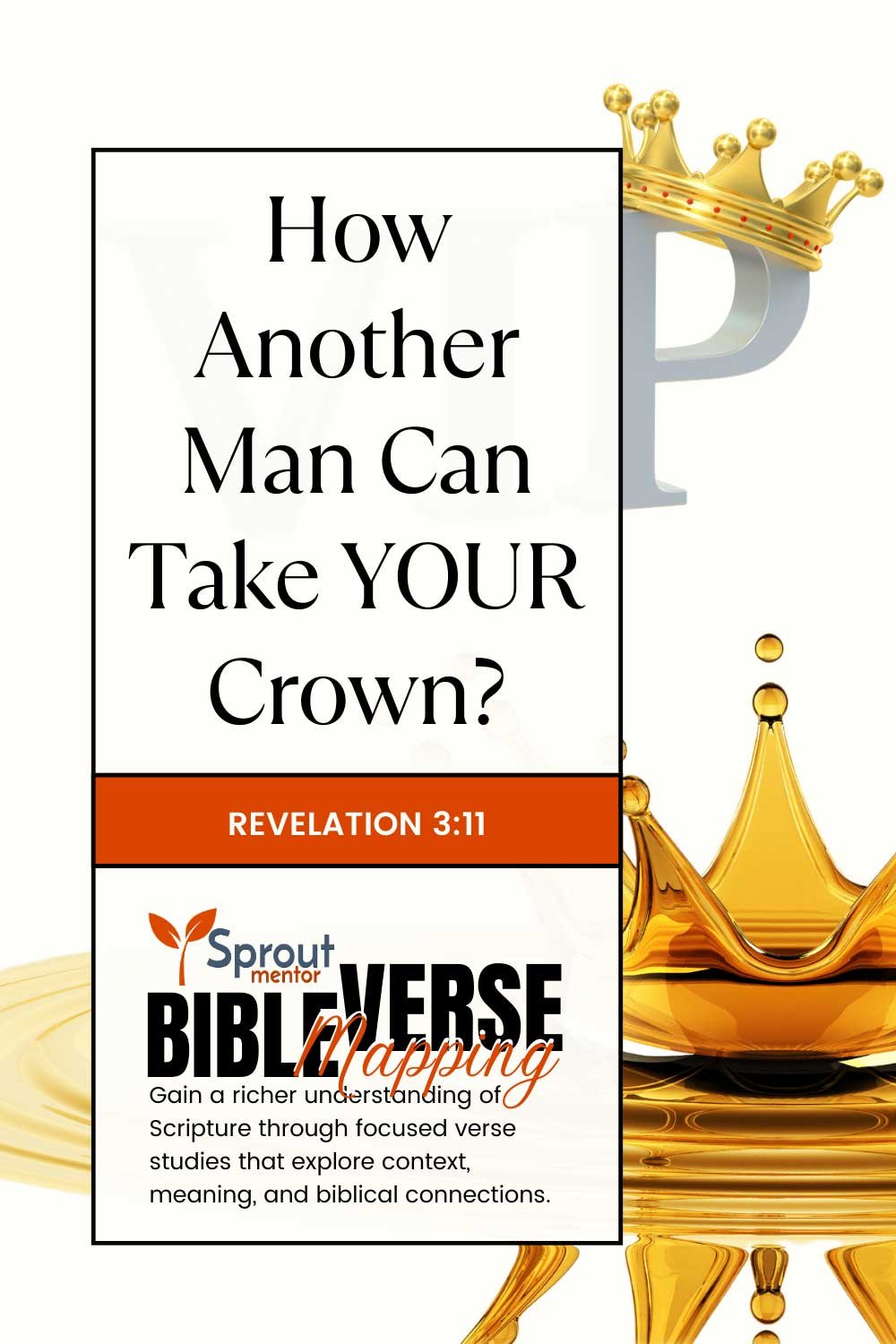What Does It Mean That Man Became a Living Soul? (Genesis 2:7)

Share This Blog Post On:
Short on time, but big on faith? We break down complex topics into easy-to-understand chunks, making the Bible accessible to everyone. Join us for answers to your Bible questions and encouragement for your daily walk with God. Click here to grow your faith, one byte at a time!
“And the LORD God formed man of the dust of the ground, and breathed into his nostrils the breath of life; and man became a living soul.” (Genesis 2:7, KJV)
This article explores the profound theological, spiritual, and practical implications of what it means to be a “living soul” and how this identity shapes our relationship with God, our choices, and our eternal destiny.
How Man Became a Living Soul
When God uttered the words, “Let us make man” (Genesis 1:26), He revealed the intentionality and complexity behind creating humanity. This declaration was more than a simple statement; it was an invitation for divine collaboration among the members of the Trinity—the Father, the Son, and the Holy Spirit, and each played a distinct role in the threefold process—Creation, Formation, and Making—of bringing humanity into existence as explained below.
The Father’s Role
Creation was an act attributed directly to God the Father. In Genesis 1:27, the Hebrew word used here for “create” is bara, which implies creating something new without using preexisting materials. This initial step was foundational; for it resulted in the creation of the immaterial part of humanity—the spirit. God, as the Source of life, did not rely on physical elements to bring forth the spirit of man. Instead, He spoke it into existence, showing His sovereign power to create out of nothing.
The Son’s Role
The next phase involved forming the physical body and merging it with the immaterial part, the spirit. This task of formation fell to God the Son, and our key verse Genesis 2:7 now shows us how this formation process went down. The word “formed” in this verse is translated from the Hebrew word yatsar, meaning to shape, mold, or fashion. Unlike the spirit, which was created from nothing, the body was shaped using the dust of the earth.
The Holy Spirit’s Role
After the formation of the body, the LORD God breathed the immaterial spirit created by the Father into Adam’s nostrils. The Hebrew word for “breath” here is neshamah (נְשָׁמָה), which can also be translated as “spirit.” When God breathed the spirit into Adam, he became more than just a physical creature. He became a being with a soul—a union of spirit and body. The act of breathing life into man signifies the infusion of something divine into the human being.
How God’s Breath Defines the Human Soul
This action is particularly significant because it highlights the special relationship between God and humanity. Whereas animals were created with life (as Genesis 1:30 indicates), human beings were endowed with life through the personal breath of God. God’s breath into man was not just a physical act but a spiritual one. It is this divine breath that distinguishes man from all other creatures, creating in him the capacity for spiritual understanding, moral reasoning, and communion with God. This unique feature is foundational to understanding what it means to be a “living soul.”
The Tripartite Nature of Man
Man comprises three distinct dimensions: spirit, soul, and body (1 Thessalonians 5:23). Each dimension, in turn, unfolds into three other distinct aspects.
The Spirit
Within the spirit, we encounter the facets of conscience, intuition, and fellowship. The conscience serves as a guiding force, discerning right from wrong. Intuition, often described as a whisper from the divine, guides individuals towards truth and insight. Fellowship embodies the innate longing for connection and unity, both with the divine and with fellow beings.
The Body
Within the physical dimension, our body unfolds through the dimensions of senses, flesh, and action. Our senses serve as windows to the external world, shaping our understanding of reality through sight, sound, touch, taste, and smell. The dimension of flesh embodies the physical substance of our bodies, comprising muscles, bones, organs, and tissues. Action encompasses the ability to move and interact with the external world, translating intentions into tangible outcomes.
The Soul
Finally, the soul is also made up of three main parts. In Hebrew, the term for “soul” is nephesh (נֶפֶשׁ), which refers to the living, breathing being, the essence of life. It can refer to both the immaterial aspect of a person (their spirit and will) as well as their physical life. The soul is often understood as comprising three core components: the mind, the will, and the emotions. These three faculties are integral to human experience and are what makes us distinctly human.
- The Mind
This aspect of the soul involves our thoughts, reasoning, and understanding. It is through the mind that we process information, make decisions, and engage in intellectual activities. The mind allows us to perceive and interpret the world around us. Scripture emphasizes the importance of renewing the mind to align with God’s will (Romans 12:2).
- The Will
The will is central to human freedom and choice. It is the capacity to make decisions, to choose between different paths, and to act according to our desires and beliefs. This is where our moral responsibility lies, and it is through the will that we engage with God’s call to choose life or death. The concept of free will is embedded in the Bible’s narrative of humanity’s relationship with God, beginning in Genesis with the Tree of the Knowledge of Good and Evil. When Adam and Eve exercised their will to disobey God, they chose death over life (Genesis 3:6). The will plays a pivotal role in human moral choices, and the Bible often presents choices between life and death, blessing and curse, urging us to choose wisely (Deuteronomy 30:19).
- The Emotions
Our emotions are the feelings we experience in response to the world, to people, and God. The emotional aspect of the soul is a vital part of human existence, influencing how we relate to others and God. The Bible acknowledges the emotional nature of humanity, from joy and love to sorrow and anger. God Himself is portrayed with deep emotional engagement in His relationship with humanity (Jeremiah 31:3; Mark 3:5).
The Role of the Soul in Our Relationship with God
The Power of Choice
From the very beginning, God gave Adam the willpower to choose—this is seen in His command not to eat from the Tree of the Knowledge of Good and Evil (Genesis 2:16-17). This act of giving choice signifies the importance of human autonomy. Adam and Eve were not robots pre-programmed to obey, but beings capable of making decisions that could lead to life or death.
Every time you exercise your will to choose, you are not choosing right or wrong, bad or good, but life or death: “I call heaven and earth to record this day against you, that I have set before you life and death, blessing and cursing: therefore choose life, that both thou and thy seed may live.” (Deuteronomy 30:19, KJV). Similarly, in the New Testament, the call to choose life is evident in Jesus’ invitation to follow Him: “I am the way, the truth, and the life.” (John 14:6). Choosing Christ is choosing life—not just physical life but eternal spiritual life. Every decision we make in life, whether consciously or unconsciously, involves this duality of life and death.
Our will is not just a passive tool but an active participant in our spiritual development. The choices we make shape who we become. To grow in Christ, we must make deliberate choices to live according to His will. Jesus Himself emphasized the importance of choice when He said: “If any man will come after me, let him deny himself, and take up his cross, and follow me.” (Matthew 16:24). This denial of self is a choice to live not according to our own will but in obedience to God’s will. It is a choice that leads to spiritual growth and transformation, reflecting the new life that comes from being “a living soul.”
The Corruption of The Human Soul
After the completion of the threefold process—Creation, Formation, and Making— of bringing forth humanity, the newly formed soul was in a state of innocence rather than righteousness. Innocence is a fragile state, dependent on a lack of exposure to sin. Righteousness, on the other hand, is a steadfast attribute rooted in God’s character.
In the state of innocence which is a neutral state, Adam was able to interact with both God and creation. God presented Adam with a choice of eating from all the trees of the garden and avoiding eating from the tree of the knowledge of good and Evil. Unfortunately, the serpent deceived him, leading him into sin. By disobeying God, Adam’s innocence merged with Satan’s fallen nature (Isaiah 14:12-14), creating a corrupted human nature. This alliance with sin introduced death, both spiritual and physical, as humanity became estranged from God (Genesis 6). The fall of Adam marked the hijacking of God’s initial plan to complete the project of a righteous man.
Despite the fall, God’s desire for a relationship with humanity did not end. The Godhead—Father, Son, and Holy Spirit—initiated a new project: Salvation. Through this plan, God set out to restore humanity to its intended purpose and to complete the process of righteousness that had been interrupted in Eden.
In John 3:16, we see the Father’s heart in redemption: “For God so loved the world that He gave His only begotten Son.” The Father’s role in this redemptive plan was to offer His Son as a sacrifice for sin, bridging the gap between God and humanity. Just as He had initiated creation by speaking life into existence, the Father initiated redemption by sending His Son into the world.
The Purpose of The Soul in Salvation
In practical terms, our use of the will directly affects our spiritual maturity. The first and most fundamental choice we make as living souls is whether to enter into a relationship with God through Jesus Christ. This relationship is rooted in the exercise of the will to accept God’s offer of salvation.
The journey of salvation unfolds in three interconnected phases: regeneration (we were saved), transformation (we are being saved), and transfiguration (we shall be saved). Initially, through regeneration, we experience the profound renewal of our spirit, a momentous event that marks our entry into the family of God. After that, the ongoing process of transformation begins, and the Holy Spirit works within us to conform us to the image of Christ. While regeneration initiates our salvation, transformation ensures its ongoing manifestation in our lives as we grow in grace and maturity. Ultimately, at the appointed time, which is at the glorious return of Christ, transfiguration will happen. In this final phase of salvation, our bodies, marred by sin and mortality, will be redeemed and transfigured into glorious, incorruptible vessels fit for eternity (Philippians 1:6; 2 Corinthians 5:1)
Since the process of transformation is continuous, the enemy seeks to stop and hinder it at every turn. The faculties (mind, will, and emotions) of the soul serve as the battleground where both the enemy’s spiritual warfare and the Holy Spirit’s spiritual transformation unfold. For example, it is within the realm of the mind that the forces of darkness seek to plant seeds of doubt, fear, and deception, attempting to derail us from the path of righteousness and hinder our growth in Christ. For this reason, a believer must be intentional in spiritual soul care to fortify their soul faculties against the attacks of the enemy.
How to Be Intentional in Spiritual Soul Care
One of the clearest biblical illustrations of the need for spiritual soul care is found in the Parable of the Ten Virgins in Matthew 25:1-13. In this story, five of the virgins were found wise because they carried extra oil in their vessels, while the foolish ones did not. The vessels in this context represent the human soul. The vessels must be full of oil, which represents the soul’s ongoing renewal and connection with the Holy Spirit. The lamp, a symbol of the human spirit, is ready to be ignited by the flame — that is the Holy Spirit. The foolish virgins failed to prepare their souls and ran out of oil, unable to ignite the light needed for the bridegroom’s arrival.
Our souls must be continually filled with oil—spiritual practices such as prayer, worship, and intentional soul care to allow the oil to permeate the human vessel. When this happens, we become vessels ready for transformation, radiant with God’s presence. Spiritual transformation isn’t about surface-level actions. The oil in the vessels represents an internal change—an ongoing journey of heart alignment, spiritual discipline, and emotional healing. Without this internal preparation, the light of Christ cannot shine brightly within us.
Just as the bridegroom arrives when least expected, our opportunity for spiritual awakening can come at any moment. Like the wise virgins, we must ensure that our souls are continually prepared. The virgins are like believers—everyone starts with potential, but only those who intentionally nurture their spiritual lives will be ready for the bridegroom, symbolizing Christ’s return.
Conclusion: What Does It Mean That Man Became a Living Soul?
Your soul is more than just an aspect of your inner being. It’s a dynamic force in your life, capable of transforming your experiences, choices, and ultimately your destiny. But for your soul to fully impact your life, it needs to be properly renewed, much like oil in a lamp.
The soul’s primary purpose is to know God and to live in fellowship with Him. Our emotions, minds, and will are meant to reflect His image and engage with Him in a dynamic, ongoing relationship. The exercise of our will—our ability to choose life—is central to this relationship. Just as Adam and Eve had the freedom to choose obedience or rebellion, we too face daily decisions that will either draw us closer to God or lead us away from Him.
Our choices are not just about morality or ethics; they are about life and death. The power of choice has been entrusted to us by God, and it is through the deliberate exercise of our will that we grow spiritually and live in alignment with His will. As we choose life, we embrace our true identity as beings made in God’s image, living in communion with Him for all eternity.
It is the daily exercise of choosing God’s way over our own, even when it is difficult, that strengthens our faith and draws us closer to Him. In 1 Corinthians 11:31, the Apostle Paul encourages believers to judge themselves and to examine their choices and actions so that they may avoid judgment.
Continue Reading More On:
|







